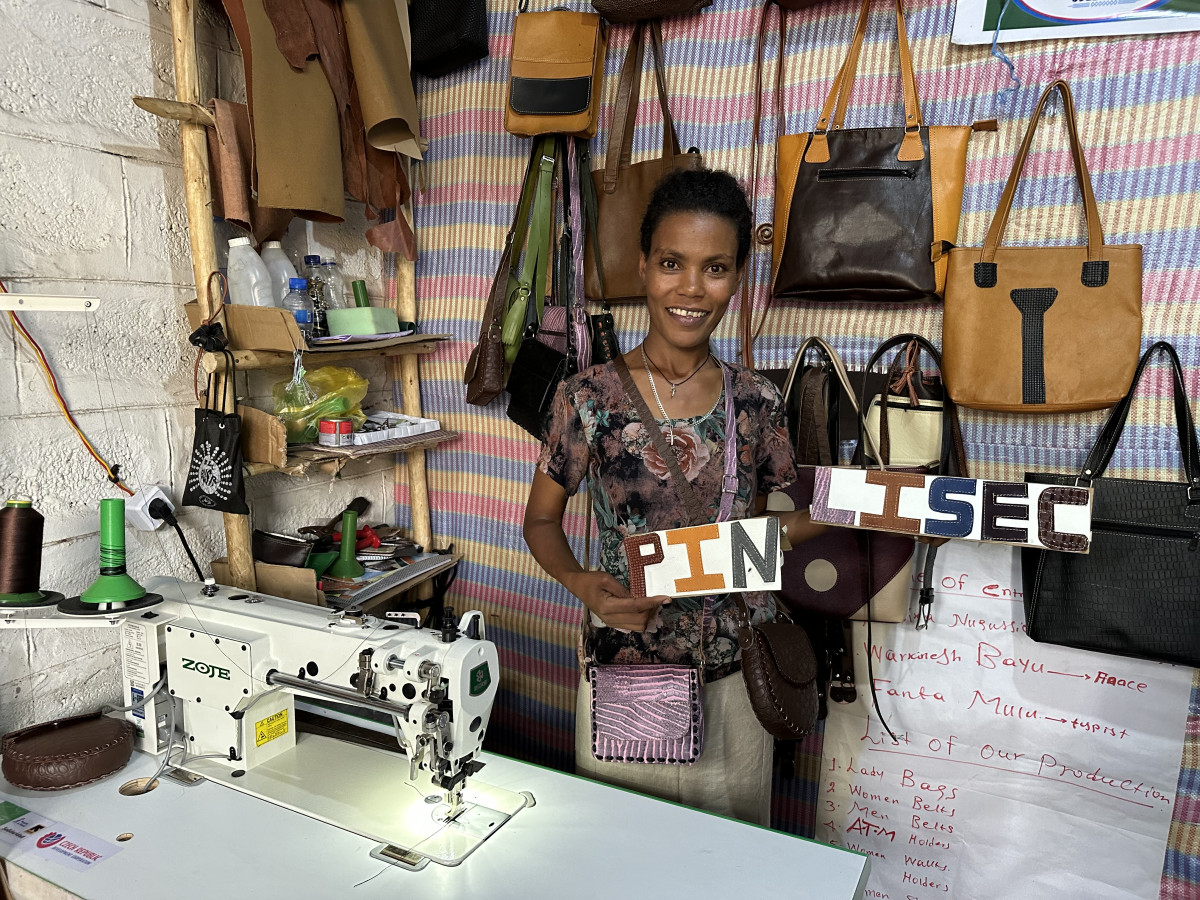Fasika's story: Fashioning a living from leather in Ethiopia
Published: Nov 10, 2023 Reading time: 3 minutes Share: Share an articleToday, Ethiopia faces deep socio-economic crises. Among these is a high—and growing—level of youth unemployment. However, our colleagues in Ethiopia remain steadfast in their commitment to combating this challenge. Our colleagues support young Ethiopians by providing jobs, training, and opportunities for self-development and self-employment through our LISEC (Leather Initiative for Sustainable Employment Creation) project.

One such participant in LISEC is Fasika Nigusse; she makes and sells handmade leather products. For a long time, she did so without the finance and business skills to run her business. She spent money in a way that was not necessarily best for her or her business. But now, following training within our project, Fasika's entrepreneurial skills are in full bloom. She now owns a shop and runs her business efficiently. Her success is a testament to the value of our skills training in the green jobs in the leather sector initiative.
LISEC is funded by the EU to improve the leather sector in Modjo and surrounding areas. Our LISEC team plans to support at least 10 Medium, Small and Micro Enterprises (MSMEs). The project will enhance the leather production skills of these MSMEs whilst engaging 4,000 unemployed youth in short-term term skills training. The project will also support these youth in creating jobs for themselves. We provide the training to equip these youth with the necessary skills to start new jobs and upgrade their businesses.
Fasika attended a leather production training course and received 3 leather sewing machines. Her training was funded by the Czech Development Agency.
With the Czech Development Agency's support, we donated 24 sewing machines to 10 MSMEs, enabling entrepreneurs like Fasika to improve their product quality. Initially, she worked on footwear, and when she expanded her skills, she started to produce other leather products. In addition to leather production, Fasika also took business-related training in financial management, business development, methods to increase production and quality control, handling customer requests on time, keeping promises, loyalty, and kaizen. All these trainings were crucial to Fasika's professional and personal development.
Following the training, Fasika realised the importance of the topics she studied and now applies them in her daily routine.
Fasika owns a small store in a local market in Bishoftu. This is where she sells her products. The three sewing machines are located in her shop. These machines have helped her to improve the quality of her products. They have also motivated her to add value and new designs to her produced goods. Now, she prepares purses and belts with different designs.
In addition to increasing her product quality, Fasika is working hard to develop connections to sell her products in Addis Ababa.
The Leather Initiative for Sustainable Employment Creation (LISEC) is an EU-funded project implemented by PIN, IRC and Solidaridad; it runs from January 2021 to April 2024. The project aims to strengthen social cohesion by supporting local economic and social development initiatives, especially for women and youth living in the Modjo area, and enhancing industrial and labour relations in the Modjo leather city.


